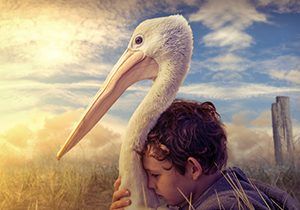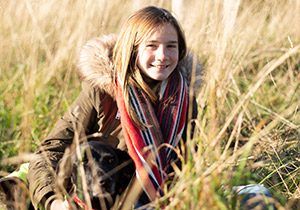
Shakespeare: English primary resource
Discover interesting facts about William Shakespeare
This primary resource provides an opportunity to begin discussion about the playwright and poet William Shakespeare, and other famous historical writers. Discover more about Shakespeare’s life and times with our fun-to-read comic strip. When was Shakespeare born? What three categories can his plays be divided into? What words and phrases did Shakespeare invent that we still use today?
Pupils will discover interesting facts about William Shakespeare in our National Geographic Kids’ English primary resource.
The teaching resource can be used in study group tasks, as a printed handout for each pupil to review and annotate, or for display on the interactive whiteboard for class discussion.
Activity: Ask the children whether they have heard of any of Shakespeare’s plays or poems. Which ones have they heard of? What do they know about the plot? Ask children to design a poster for Romeo and Juliet, which is mentioned in the resource. They could draw and write a comic book strip of one of Shakespeare’s plays, or write a play or poem of their own.
N.B. The following information for mapping the resource documents to the school curriculum is specifically tailored to the English National Curriculum and Scottish Curriculum for Excellence. We are currently working to bring specifically tailored curriculum resource links for our other territories; including South Africa, Australia and New Zealand. If you have any queries about our upcoming curriculum resource links, please email: schools@ngkids.co.uk
This English primary resource assists with teaching the following Lower Key Stage 2 English (Year 3 & 4) objectives from the National Curriculum:
Pupils should be taught to: develop positive attitudes to reading and understanding of what they read by:
- listening to and discussing a wide range of fiction, poetry, plays, non-fiction and reference books or textbooks
- preparing poems and play scripts to read aloud and to perform, showing understanding through intonation, tone, volume and action
- increasing their familiarity with a wide range of books, including fairy stories, myths and legends, and retelling some of these orally
- identifying themes and conventions in a wide range of books
- discussing words and phrases that capture the reader’s interest and imagination
Pupils should be taught to: understand what they read, in books they can read independently, by:
- drawing inferences such as inferring characters’ feelings, thoughts and motives from their actions, and justifying inferences with evidence
- identifying how language, structure, and presentation contribute to meaning
Pupils should be taught to:
- plan their writing by: discussing and recording ideas
- draft and write by: in narratives, creating settings, characters and plot
- read aloud their own writing, to a group or the whole class, using appropriate intonation and controlling the tone and volume so that the meaning is clear.
National Curriculum Upper Key Stage 2 English (Year 5 & 6) objective:
Pupils should be taught to: maintain positive attitudes to reading and understanding of what they read by:
- continuing to read and discuss an increasingly wide range of fiction, poetry, plays, non-fiction and reference books or textbooks
- reading books that are structured in different ways and reading for a range of purposes
- increasing their familiarity with a wide range of books, including myths, legends and traditional stories, modern fiction, fiction from our literary heritage, and books from other cultures and traditions
- identifying and discussing themes and conventions in and across a wide range of writing
- making comparisons within and across books
Pupils should be taught to: understand what they read by:
- checking that the book makes sense to them, discussing their understanding and exploring the meaning of words in context
- asking questions to improve their understanding
- drawing inferences such as inferring characters’ feelings, thoughts and motives from their actions, and justifying inferences with evidence
- predicting what might happen from details stated and implied
- summarising the main ideas drawn from more than one paragraph, identifying
- key details that support the main ideas
- identifying how language, structure and presentation contribute to meaning
Pupils should be taught to:
- discuss and evaluate how authors use language, including figurative language, considering the impact on the reader
- perform their own compositions, using appropriate intonation, volume, and movement so that meaning is clear.
This English primary resource assists with teaching the following Literacy and English Early level objectives from the Scottish Curriculum for Excellence:
- I enjoy exploring events and characters in stories and other texts, sharing my thoughts in different ways.
- I enjoy exploring and playing with the patterns and sounds of language and can use what I learn.
Scottish Curriculum for Excellence First level Literacy and English objectives:
- I can share my thoughts about structure, characters and/or setting, recognise the writer’s message and relate it to my own experiences, and comment on the effective choice of words and other features.
- I enjoy creating texts of my choice and I regularly select subject, purpose, format and resources to suit the needs of my audience.
Scottish Curriculum for Excellence Second level Literacy and English objectives:
- As I listen or watch, I can identify and discuss the purpose, main ideas and supporting detail contained within the text, and use this information for different purposes
- I can show my understanding of what I listen to or watch by responding to literal, inferential, evaluative and other types of questions, and by asking different kinds of questions of my own
- I can: discuss structure, characterisation and/or setting
- I can: recognise the relevance of the writer’s theme and how this relates to my own and others’ experiences
- I can: discuss the writer’s style and other features appropriate to genre.
- I enjoy creating texts of my choice and I regularly select subject, purpose, format and resources to suit the needs of my audience.
Scottish Curriculum for Excellence Third level Literacy and English objectives:
I can:
- discuss and evaluate the structure, characterisation and/or setting using some supporting evidence
- identify the main theme of the text and recognise the relevance this has to
my own and others’ experiences
- identify and comment on aspects of the writer’s style and other features appropriate to genre using some relevant evidence.
Scottish Curriculum for Excellence Fourth level Literacy and English objectives:
I can:
- discuss and evaluate the effectiveness of structure, characterisation and/or setting using some supporting evidence
- identify how the writer’s main theme or central concerns are revealed and can recognise how they relate to my own and others’ experiences
- identify and make a personal evaluation of the effect of aspects of the writer’s style and other features appropriate to genre using some relevant evidence and terminology.
Download primary resource
Note: This is a subscriber-only benefit. If you have an active subscription, please log into your online account to download the files.
More Like

Follow your food!

Bird lover builds 27,500 swift nest boxes!

Storm Boy!










LEAVE A COMMENT
THANK YOU
Your comment will be checked and approved shortly.
WELL DONE,
YOUR COMMENT
HAS BEEN ADDED!
COMMENTS1
Miss Chandler
Wow - this really helped teaching Shakespeare to my Year 6 class!
CUSTOMIZE YOUR AVATAR